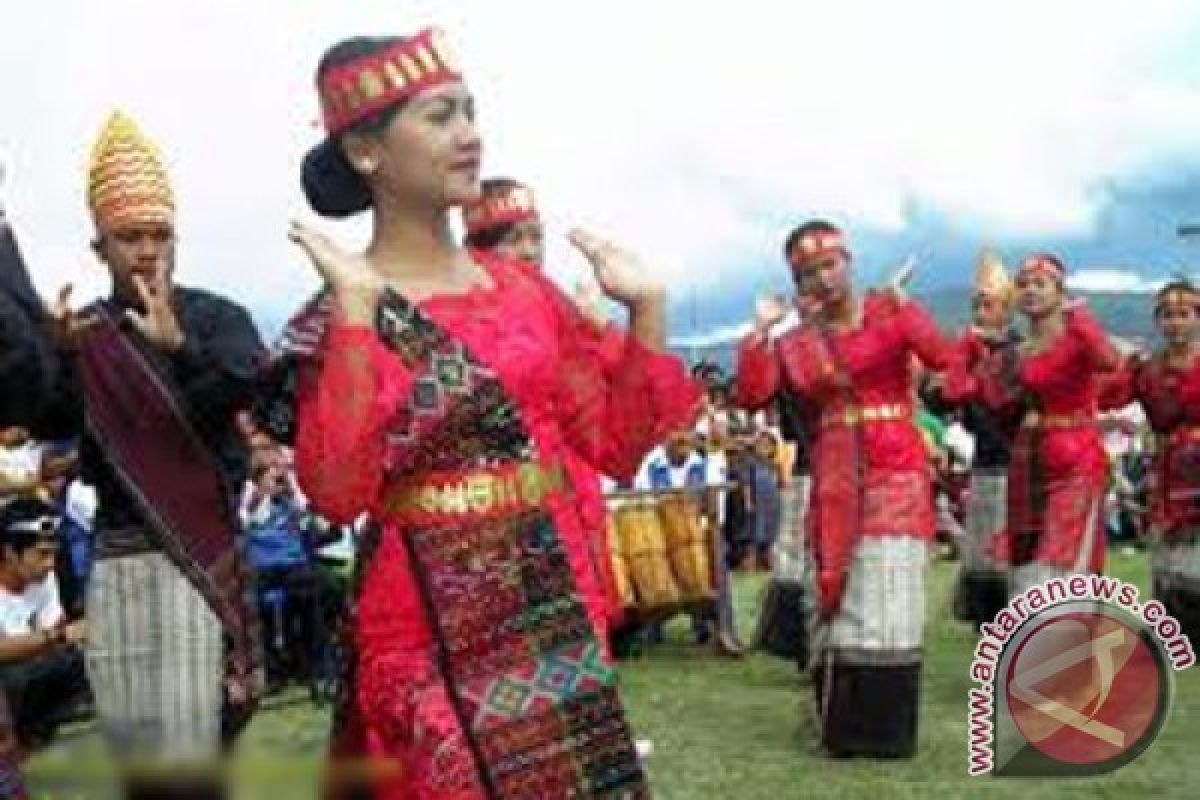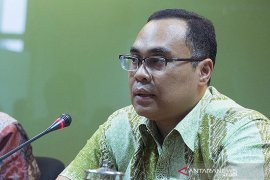"This is only a misunderstanding."Jakarta (ANTARA News) - The Indonesian people have often been upset when Malaysia claims some aspects of their culture as its own, yet the neighbouring country continues to do so.
This time, Malaysia has reportedly incorporated the Tor-Tor dance and Gordang Sembilan music - indigenous to the Mandailing community in North Sumatra - in its National Heritage Law. Therefore, on Wednesday, students staged a protest outside the Malaysian Embassy in Jakarta.
Rais Yatim, Malaysia`s minister of communication and culture, was quoted by Malaysian state news agency Bernama on Thursday as saying that the Tor-Tor dance and Gordang Sambilan music would be added to the country`s National Heritage Law.
Malaysia had made similar claims in the past, too. Almost three years ago, in August 2009, the Indonesian people were furious over Malaysia`s claim on the "pendet" dance of the Indonesian island resort of Bali.
"This is outrageous. Malaysia has claimed not only the pendet dance, but also paintings or Batik designs and the copyrights of several national songs," said Ida Ayu Agung Mas, a member of the Regional Representatives Council (DPD), at that time.
A "Visit Malaysia Year" commercial, developed to boost the country`s attractiveness to the world, had featured the pendet dance as if the dance was indigenously Malaysian. The ad was broadcast by a number of local and overseas television stations.
"We have all heard how some aspects of the Indonesian culture have been claimed by Malaysia as its own, such as `wayang` (Javanese puppet) and `reog Ponorogo` (masked dance from East Java)," Ida said.
Now, it is the turn of Tor-Tor dance. The Indonesian people are highly suspicious that Malaysia will claim the dance as its own, even though an Indonesian diplomat and a Malaysian consul general have already declared that it was a misunderstanding.
"This is only a misunderstanding," said Suryana Sastradiredja, the Head of Information, Social, and Cultural Affairs of the Indonesian Embassy in Kuala Lumpur.
Suryana stated that he was contacted by the Malaysian Ministry of Information, Communication, Culture and the Union of Mandailing community in Malaysia and was told that they had no intentions of claiming the Tor-Tor dance and Gondang Sambilan music as their own.
He said the art forms would be registered as a cultural heritage of Malaysia`s Mandailing community, which originally came from Mandailing, North Sumatra, Indonesia.
"The deed on national heritage only records the origin [of the art forms] and does not claim that Mandailing culture comes from Malaysia," Suryana explained.
The Mandailing people, he said, came to Malaysia hundreds of years ago and their descendants wanted to promote their art and culture in the country.
The community wants its culture to be given an equal standing with other Indonesian cultures that have long existed in Malaysia, such as Javanese, Bugis or Minang.
Norlin Binti Othman, the Malaysian Consul General in Medan, North Sumatra, agreed with Suryana. She said the controversy about Malaysia`s claim over the Tor-Tor dance and Paluan Gondang Sembilan music has arisen only as a result of misunderstanding.
Norlin noted that the term "diperakui" (recognised) or "memperakui" (to recognise) in Malaysia was meant to connote adoption, endorsement or approval; it did not imply ownership over the art forms.
However, Hikmahanto Juwana, an international law observer from the University of Indonesia warned that the government and the people of Indonesia should not be deceived by such a statement. "The government and people should not be fooled by the statement of Consul General Norlin," he said.
In the Malaysian National Heritage Law, Hikmahanto explained, there were no such terms as "diperakui" or "memperakui", adding that what existed was the term "to declare" a cultural heritage as a national heritage.
"So, it is not clear what article or section of the Malaysian National Heritage Law the Malaysian consul general was referring to when she said `diperakui` or `memperakui`," he said.
Hikmahanto added that the consul general "invented" the statement to deceive the people of Indonesia, because she did not refer to the other articles of the law, particularly articles 69 and 70, which could hurt the people of Indonesia.
He said Article 69 was titled "Ownership", while Article 70 had "The Change of Ownership of National Heritage" as its title.
"Therefore, based on articles 69 and 70 of the National Heritage Act of Malaysia, it is not right that the two art forms from Batak be registered by the government of Malaysia," Hikmahanto stated.
Based on Article 70, the change of ownership can happen in two ways - through heritage or a sale-purchase deal. Therefore, many Indonesians suspect, Malaysia is claiming ownership of the art forms.
According to clause two of Article 70, Hikmahanto noted, if a national heritage is to be sold, it must first be offered to the National Heritage Commission.
He expressed support for the efforts of Deputy Minister of Education and Culture Windu Nuryanti, who sought a clarification from Malaysia.
Earlier, Windu said Indonesia had asked for a written explanation from Malaysia regarding its claim over the Mandailing traditional dance and music.
"We have communicated with the Malaysian ambassador to Indonesia, who said that it was actually not a claim but only a note. We want clarification regarding the category under which that note is. They have promised to provide an explanation tomorrow," she stated.
Windu added that her office had referred the case to the foreign ministry, which then communicated with the Malaysian minister of information, communication and culture.
"They said because there are members of Mandailing community living in Malaysia, the Malaysian government is obliged to protect their culture with a preservation programme," she explained.
Windu said Malaysia had already confirmed that it did not claim Tor-Tor and Gordang Sambilan as its cultural heritage.
"Indonesia`s stance is clear. We will ask for a written statement and, based on that, we will follow it up. It is all right if Indonesian culture is promoted anywhere, but the origins must be clearly explained," she stated.
(T.A014/INE/KR-BSR)
Reporter: by Andi Abdussalam
Editor: Priyambodo RH
Copyright © ANTARA 2012










